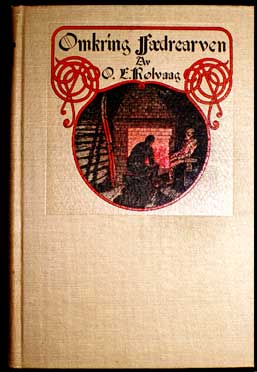by Johnathan Storlie, PhD
Giants of the Earth Heritage Center’s creation was inspired by the Norwegian-American Professor Ole Rolvaag, whose Giants in the Earth trilogy illustrates the experience of immigrants from many countries as they become Americans. Although Rolvaag’s books ultimately teach the importance of tolerance and compromise, he didn’t believe that people would have to give up their principles as they became Americans. In fact, he believed that the merging of various cultures could be beneficial to people as it would help them to identify those core principles that transcend merely idiosyncratic ethnic traditions.
“The strongest and most important characteristic of the Norwegian people…is their love of freedom, which leads them to set their highest priority on individual rights under common law. Since this last trait is the essence of the American ideal, it means that the Norwegian immigrant is already a good American before he even leaves home.” –Ole Rolvaag, Concerning Our Heritage
Given this seminal quote, it is ironic today that ethnic museums and centers, including Norwegian-American ones, are embracing the most idiosyncratic of their ethnic leisurely activities, while paying little or no notice to their ancestors’ highest priorities and strivings. Evidently, they do this out of fear that such discussion might be viewed by someone as too political, too religious, too existential, or too deep. In other words, any discussion of meaning or abstract principles could arouse controversy, while merely preserving the quaint seems innocuous. Rather than passing down what is essential to our children we enshrine the chaff and throw the seed. “We have made a desert and called it peace.” Yet, longitudinal studies on the resilience of children at Emory University demonstrate that our children desperately need meaning. Thus, the clinging to idiosyncratic cultural traditions, while not passing down the principles that our more actualized ancestors sacrificed so much for, is actually not innocuous at all, but nihilistic. In this light, Rolvaag’s quote is like the voice of one crying out in a wilderness of merely amusing ethnic idiosyncracies that fail to cultivate the physical, emotional, spiritual, and intellectual potential of our children.



